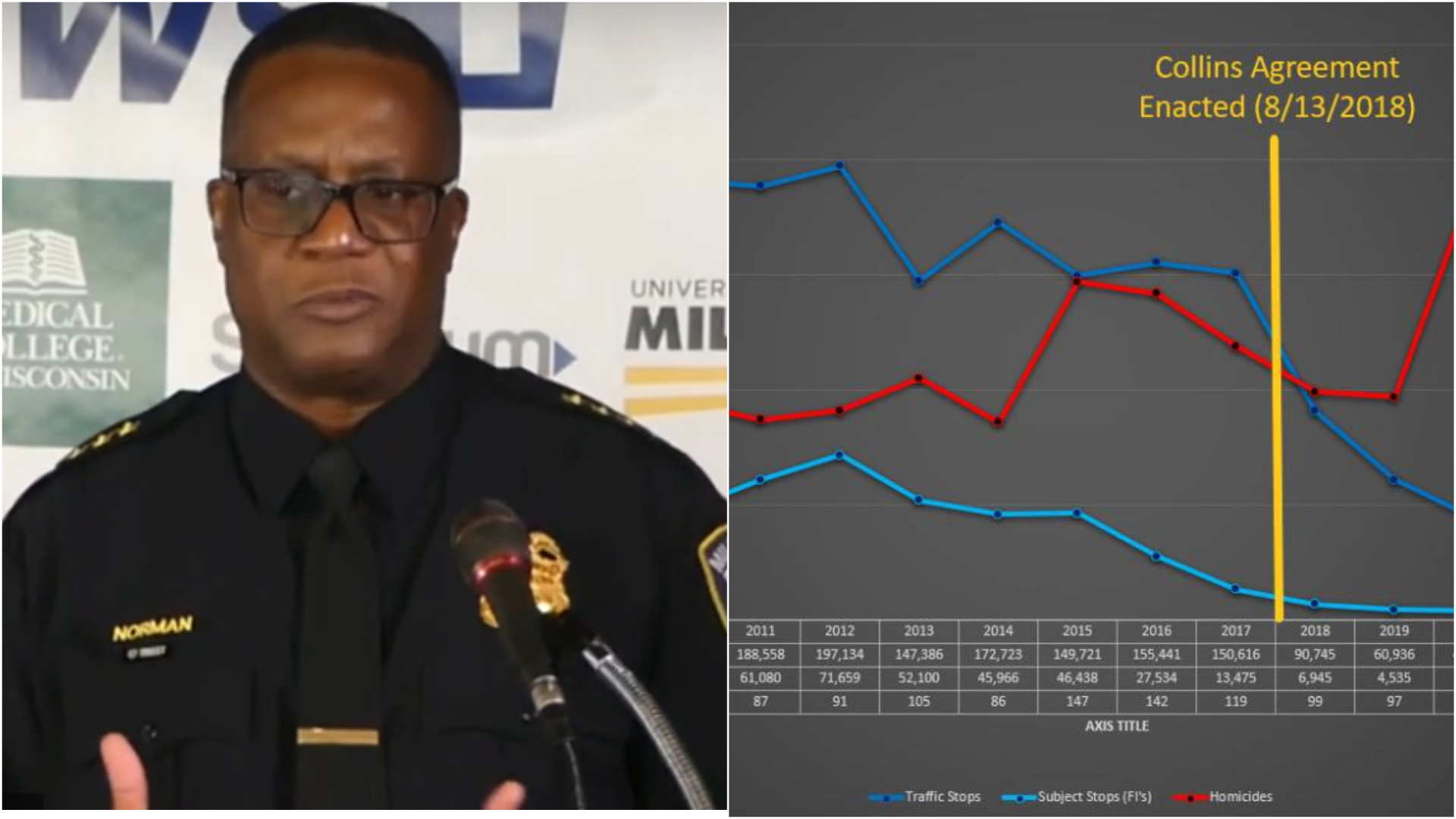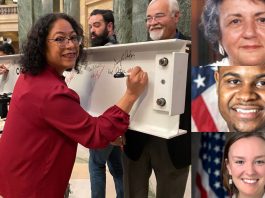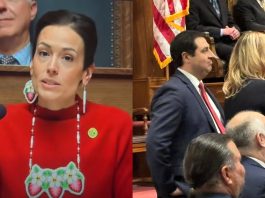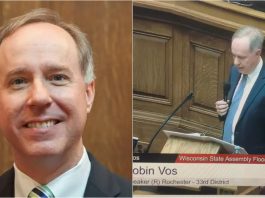After the Collins agreement went into place in 2018, field interviews decreased 90% in five years, and traffic stops dropped by 79%.
Milwaukee Police Chief Jeffrey Norman is calling for the Collins Agreement to be “heavily modified,” saying that the “cumbersome” requirements of the controversial 2018 ACLU-fueled settlement have harmed proactive policing.
Norman’s comments represent a major change in the chief’s public stance. In 2021, MPD wrote in a press release that the chief “has continued to stress that compliance with the Collins Agreement and providing high-quality constitutional policing is one of MPD’s highest priorities.”
“I absolutely do believe that the Collins agreement should be modified. It should be heavily modified,” Norman said on Aug. 12.
The chief said the Collins Agreement carries a “cumbersome, burdensome administrative process that does hurt proactive policing.”
Wisconsin Right Now has learned, through sources, that the city has been in mediation over the Collins Agreement for several years, with some in the Milwaukee police force concerned that the city attorney’s office has not made modifying it a priority. Sources say Norman and Milwaukee police leaders have been working behind the scenes to get it changed for some time.

Norman made his comments at a Milwaukee Press Club/Newsmaker luncheon in response to a question from Milwaukee journalist Jessica McBride. Read a full transcript of Norman’s appearance with audio here.
“I spoke to a number of your officers and asked them what what they wanted to know from you. And one thing that came up over and over again, is the Collins agreement; they said it makes it difficult, if not impossible, for them to do proactive policing,” McBride told Norman.
“After the Collins agreement went into place in 2018, field interviews decreased 90% in five years, and traffic stops dropped by 79%, and reckless driving exploded. I understand you don’t have unilateral authority to revoke this. I get it is in the court system and so forth. But do you support the Collins agreement? Do you support its continuation, and will you call for the city to find a way to end it?”
[Learn more about the numbers and officers’ perspectives here. “I used to be very proactive,” said one Milwaukee police officer. “Now, I act like a fireman. I sit and wait for a call, go take that call, then go back to waiting for the next call. I, and most cops, no longer do ANY proactive policing.”]
Chief Norman Calls for the Collins Agreement’s Modification
Norman responded: “So to start this conversation off, one of the things that we need to realize is how we got into this…I inherited this. If anything that we have to look at is how we’re re-navigating this court order, this settlement in regards to what was necessary for the examples of how we led into this. I can see why we got the Collins settlement agreement.”
“But with that being said, because that’s one of the things that this administration really worked hard, is making sure there were systems in place, checks and balances to ensure that we are leaning into this work, leading to expectation, I absolutely do believe that the Collins agreement should be modified. It should be heavily modified, because there are a lot of things that our men and women have been doing consistently well in regards to the work that needs to be done.”
The ACLU touts the Collins Agreement on its website, claiming it was sparked by the Police Department’s “vast and unconstitutional stop-and-frisk program” and alleged rampant racial profiling. The city paid the ACLU $3.4 million as a result of its so-called “stop-and-frisk” policy.
Chief Norman Said the Collins Agreement Has ‘a Number of Administrative Burdens’
“The Collin agreement has a number of administrative burdens,” explained Norman.
“So let me level set this conversation too. I wholly support the Constitution and following the Constitution, constitutional policing is a bedrock for our trust and understanding that this is how we are bestowed the privilege to police within our respective communities.”
He added: “With that being said, there is a Collins agreement in regards to looking for those constitutional violations. And I didn’t mean to air quotes, but constitutional violations, which we have yet to see, that particular repeat or serious type of examples, but we do have a cumbersome, burdensome administrative process that does hurt proactive policing, and I’m not ashamed to say that, because there is challenges in regards to certain type of report writings where we have officers working long hours that we can lean into this work and modify.”
Continued Norman: “And so there has to be a balance act. We need to make sure that we are continuing to lean in and be responsible for constitutional policing, ensuring that we are following the law. But when we look at from the administrative side of this Collins agreement, absolutely, and I have been putting forth those particular advocacy but as you just said, I don’t run this. All I can do is advocate.”
The chief said he tries not to get into public disputes.
“And one of the things I don’t do, and I don’t try to have this type of public messiness, just because you don’t see me at every corner on a microphone, because I use that microphone for the appropriate conversations. Those conversations have been had with a number of different people. I just don’t need to do it in the public. But I have been advocating, as you can see, that we have had some modifications. But yes, Jessica, we want more. I’m asking for more,” he said.
Norman Was Asked for More Specifics
“Can you be specific about how you want it modified?” McBride asked.
“Well, I say this very much,” he responded. “The easy, low-hanging fruit is traffic stops. Our traffic stops have been consistently over the you know, 86% we’ve been in the 90s consistently. Are there ways to track and make sure that we are continuously, making sure that we are being, again, responsible in the work that we do, we have so many checks and balances measures.”
“I mean, a lot of times, from the city standpoint, we as a department is used as like the example of accountability and tracking. And so I believe that the low-hanging fruit is traffic stops. I mean, that’s just one, but I look at from a standpoint of just a lot of administrative stuff. You know, when things need to be filed. There’s requirements for officers.”
He added: “There’s requirement for the supervision. You know, there is really no wiggle room at the end of the shift. Reports need to be filed. Some of our officers have done two shifts. They’re tired,” he said.
“And so to think about these particular type of requirements is a challenge of saying, man, to do this is I’m going to have to be burdened with this particular report at the end of my shift. Amongst all the other reports, there’s cost associated with this. That’s overtime being used. So there’s a lot of things that we can lean into on this particular effort. And I’m not afraid to say it. I believe that we have shown ourselves to be responsible within this organization, we have many checks and balances, and I’m committed as long as I’m in this seat, which I’m in this seat for another four years, you can be reassured no foot will be let off the pedal. You’ll be reassured that I will not allow things to backslide under my watch. That’s my commitment.”
Wispolitics.com partnered with the Milwaukee Press Club for the Newsmaker series sponsored by HB Strategies, the Medical College of Wisconsin, Spectrum, UW-Milwaukee, and the Wisconsin Transportation Builders Association. The other panelists were Milwaukee Journal Sentinel reporter David Clarey and Jenna Rae from WTMJ-TV.
Table of Contents












